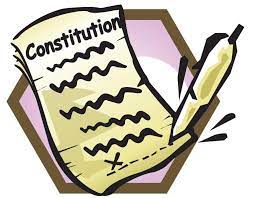Now is the time for vigilance in watching for the contents of bad education bills
By KNEA Government Relations and Communications
We have officially reached the mid-point of the 2022 Kansas legislative session this week. Both chambers adjourned Wednesday after passing nearly 50 pieces of legislation. None of the controversial anti-public-schools bills saw the light of day on either chamber’s floor, but they’re not dead – yet. Fortunately, we have the next six days that they are on break to catch our breath.
Now that Thursday’s “turnaround” has come and gone, we must be more vigilant to watch the shell game unfold. We are reaching the point in session where bills get bundled together or amended in committees or amendments get added on the chamber floors. A seemingly harmless bill can turn terrible in a matter of minutes. Nothing is ever truly dead in the Kansas Legislature.
For example, in the Senate, Senate Bill 496 the Senate’s version of the “parents bill of rights” is still alive. Unlike the House version, this bill contains only the “parents bill of rights” portion. However, the possible “transparency” components from the Senate remain in committee. While they did not pass before the turnaround deadline and should be considered dead, we know that legislative tactics could very easily resurrect them.
Other education bills that remain in play following the turnaround deadline include the following:
- Vouchers + Open Enrollment + Alternative Educational Opportunities = HB 2615
Sub for HB 2615 started as a bill authorizing school districts to provide alternative educational opportunities outside of the classroom. This proposed legislation, as introduced, is not a bad bill. It allows students to participate in alternative education opportunities for course credit (think internships or long-term 4-H projects) so long as they are sponsored by a teacher from their school and is approved by the Kansas State Board of Education.
The bill was amended in committee to now include the contents of HB 2550 (the monster voucher bill repeat from last year) and HB 2553 (mandated open enrollment for all public schools).
We submitted testimony opposing HB 2550 and HB 2553. We will continue to remain opposed to this bill. It had been made abundantly clear during the committee process that the committee members of the majority party have no issue with private schools being held to different standards than public schools. An amendment offered to require additional audits of private schools failed. An amendment offered to prohibit discrimination by private schools failed. They want to be able to cherry pick students and receive taxpayer dollars but have zero accountability.
The Senate’s version of open enrollment, contained in SB 455, also remains in play. No action has been taken on it thus far.
- “Parents’ Bill of Rights” & Academic “Transparency” + Questionnaire “Transparency” = HB 2662
Sub for HB 2662 started as the bill containing the so-called “Parents’ Bill of Rights” & “Academic Transparency” requirements. As noted in last week’s UTD, the bill was amended in committee to include the contents of HB 2513 now also, which requires school districts to provide parents with copies of any surveys or questionnaires administered to students that contain questions about their individual or family values or beliefs.
We testified against HB 2662 and will continue to oppose it as it is bundled.
- Computer Science Course Mandate = HB 2466
HB 2466 establishes the Promoting Advancement in Computing Knowledge Act (PACK). As amended by the House Education Committee, the bill no longer mandates a graduation requirement. Instead, it now requires that all high schools in public school districts in Kansas have at least one computer science course offering by the 2023-24 school year. The original bill included $2 million to the Kansas State Board of Education and the Kansas Board of Regents to help with professional development and teacher recruitment initiatives, but the amended bill no longer includes this funding. We testified against this bill and remain opposed to it as it oversteps the constitutional duty and authority of the State Board of Education.
- Virtual School Diploma Completion + Graduation Rates + Financial Incentives = HB 2512
Sub for HB 2512 as amended by committee provides an alternative calculation of graduate rates for virtual schools (originally the contents of HB 2602), prohibits virtual schools from offering any financial incentive to entice students to enroll (originally the contents of HB 2649), and authorizes virtual school state aid for students who are credit deficient (the original contents of HB 2512). We have not taken a position on any of these bills. However, we will continue to monitor this.
- Working after retirement adjustments = HB 2593
This is the KPERS bill that reduces the KPERS “working after retirement” employer contribution rate to only the statutory rate and decreases the waiting period to 60 days for certain retirees employed by a school district for a period ending June 30, 2024. We submitted testimony supporting this bill as we believe it would be helpful in addressing the current staffing shortage.
- State General Fund Transfer to KPERS = SB 421
Introduced by Sen. J.R. Claeys, R-Salina, this proposed legislation closely resembles Gov. Laura Kelly’s proposal to make a similar transfer in her overall budget and provides for a transfer to KPERS straight from the state general fund. The Senate passed this bill unanimously.
Gov. Kelly would have preferred that the funds first be transferred to the Kansas State Department of Education before being transferred to KPERS in order to give schools the credit for the missed transfers for accounting purposes.
KNEA supports this bill because we believe the KPERS defined benefit retirement system is a critical part of any effort to recruit and retain quality educators. As such, KNEA supports efforts to ensure that the employer contributions to KPERS – paid by the state – are fully funded to meet actuarial demands.
In addition, we believe this bill contributes to a structurally balanced budget that is fiscally responsible and addresses the needs of Kansans, including but not limited to, fully funding public schools, freezing tuition rates at Regents institutions, investing in career and technical education, providing for social service safety nets, and cutting the state sales tax rate on food.
- Restricting transgender women in school sports = SB 484
SB 484 is a repeat of a bill from last year that bans the participation of transgendered female students from teams or sports sponsored by public elementary or secondary school, a postsecondary education institution, or any school or institution that competes against a public school or institution. No action has been taken on this bill yet this session. Though, given that it has been intentionally left in play, we anticipate action will be taken soon.
Bills of interest that missed the turnaround deadline, but could be resurrected in other ways, include the following:
- Open Activities + Part-time enrollment = HB 2511
House Bill 2511, the attempt by the House K-12 Education Budget committee to legislate the Kansas State High School Activities Association, has been stricken from the House calendar, declaring it dead for now. The bill allows private or home-schooled students to participate in athletics or any other activity sanctioned by KSHSAA. It was amended in committee to add the contents of HB 2514, which requires public schools to accommodate part-time enrollment of homeschooled or private school students.
We did not take a position on HB 2511 as originally introduced, but we did submit testimony opposing HB 2514. We will continue to watch for these matters to resurface in other legislation as the session progresses.
- COVID Vaccine Prohibition = HB 2498
HB 2498 prohibits the Secretary of the Kansas Department of Health and Environment to require a COVID-19 vaccination for school children. There currently is no requirement established by the KDHE that anyone receive a COVID-19 vaccine to attend childcare or school. Right now, the decision is made locally. This bill particularly would have created a slippery slope towards removing authority all together from the KDHE Secretary.
We submitted testimony in opposition. Since the bill did not make it out of its chamber of origin before the Thursday deadline, it is considered dead.
- Senate “Academic Transparency” bills = SB 363 & SB 393
Two bills in the Senate Education Committee that established requirements for the publishing of materials on a website for the sake of “academic transparency” did not make it out of their chamber of origin before the Thursday deadline.
We testified in opposition to both bills. While they’re considered dead, we believe they could still be resurrected and added to other bills still in play.
When the Legislature returns on Tuesday, March 1, they will have three weeks until they reach first adjournment. We anticipate it will continue at the pace we’ve been seeing all session, but with an extra layer of complexity from their usual parlor tricks. As such, we must remain vigilant. Nothing is ever dead until the legislature adjourns, sine die.
Keeping an eye on the HCR 5014, a proposed amendment to the Kansas Constitution
We will keep a close eye on the progress of House Concurrent Resolution 5014. If passed by the Senate and ultimately approved by a simple majority of Kansans in the November general election, this completely unnecessary and spiteful piece of legislation would essentially strip any rules or regulation-making abilities from the Governor and state agencies and put that power in the hands of the legislature.
The Kansas House passed HCR 5014 by an 85 to 39 vote and has been sent to the Senate where it must receive 27 votes to achieve the two-thirds majority to be placed on the November ballot.
Certain Republican members of the legislature cited rules and regulations that were implemented by Democratic Gov. Laura Kelly’s administration on workers compensation as motivation for this resolution. More covert motivation from many of these members exists in their obsession to obstruct and harass the Governor just because they can. They seem to think it is their duty to relentlessly attack the Gov. Kelly as a sort of “payback” for the fierce opposition that former Gov. Sam Brownback was met with at the hands of the Democrats.
The reason we’re watching HCR 5014 closely is because the down ballot consequences of such a resolution is that constitutional amendments on the ballot are often used for, and often result in, drawing tremendous amounts of out-of-state money that confuses and motivates voters to vote against the typical slate of pro-education candidates.







